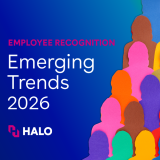Summary
When nearly a third of your workforce is showing up to work sleep-deprived it affects everything, from safety and quality to wellbeing and engagement.
According to the Center for Disease Control (CDC), some 41 million workers in America aren’t getting enough sleep. We already know that American workers take fewer vacation days and work longer hours than their industrialized counterparts around the world. But when nearly a third of your workforce is showing up to work sleep-deprived it affects everything, from safety and quality to wellbeing and engagement.
Surly Birds
Consider this: a recent UC Berkeley psychological study also found that in addition to wreaking havoc on cognitive abilities, sleep deprivation can have strange, downright chilling effect on how we perceive friend and foe. In short, researchers found that sleep deprivation dulls our ability to accurately read facial expressions, an instinctual skill that is decidedly important at work.
The experiment took 18 healthy young adults and measured their brain activity and heart rates while viewing 70 facial expressions that ranged from friendly to threatening. They viewed the images twice, once on a full night’s sleep and once after being sleep-deprived, a sort of emotional Rorschach test, and the measurements were compared. Researchers found that the sleep-deprived brains had a difficult time distinguishing between threatening and friendly faces. “Sleep deprivation appears to dislocate the body from the brain,” surmised one of the study’s main authors. “You can’t follow your heart.” Indeed, the sleep-deprived research subjects interpreted more faces, even the friendly or neutral ones, as threatening.
The Definition of Insanity
The consequences of sleep deprivation in the workplace should be more than apparent. How do we expect employees to be fresh, engaged, and ready to do their best work when their body and brain aren’t even on the same page? They can’t, is what it comes down to, and I have a funny feeling that’s a big reason why only 13 percent of employees report actually being engaged at work.
“Insufficient sleep removes the rose tint to our emotional world, causing an overestimation of threat,” the study’s authors contend. “This may explain why people who report getting too little sleep are less social and more lonely” [emphasis ours].
Sleep deprivation is one of those things we always joke about, but it’s no joke when you look at how it affects all of us. Industrial and factory workers can’t afford to be sleep deprived, or someone gets hurt. If a cop can’t tell the difference between a threatening face and a neutral one, that’s not good either. Even the kid who makes your egg sandwich every morning needs his 40 winks or he’s going to slow down the morning commute. The more tired we are, the slower and fuzzier everything gets, and it has a ripple effect. Sleep deprivation is unprofessional, unhealthy, and unacceptable, and given the time-saving benefits modern technology affords us, it’s rather insane to keep it up for as long as we have.
Sleepwalk With Me
So use technology how it’s meant to be used and give some more hours back to your employees. Do you have workers who could easily do their jobs from home? Do they really have to be waking up an hour early to commute every day? Even one work-from-home day per week can do wonders. What about flexible scheduling? Do you have night owls that may need a bit more time in the morning? Do they have the option to shift a few hours around? Every small adjustment will help; the organization need only make it a priority.
We have summer hours during July and August, and give our employees a shortened Friday schedule for those months. We can’t sustain it all year long, and it’s kind of a pain sometimes to schedule around, but boy does everyone look forward to it. There is no greater feeling than getting 3-4 hours back on a Friday. Generally they come back Monday more recharged and ready to go. These are easy steps anyone can take. It’s time to stop worrying about how many hours your employees work, and start paying attention to how many hours they sleep.













